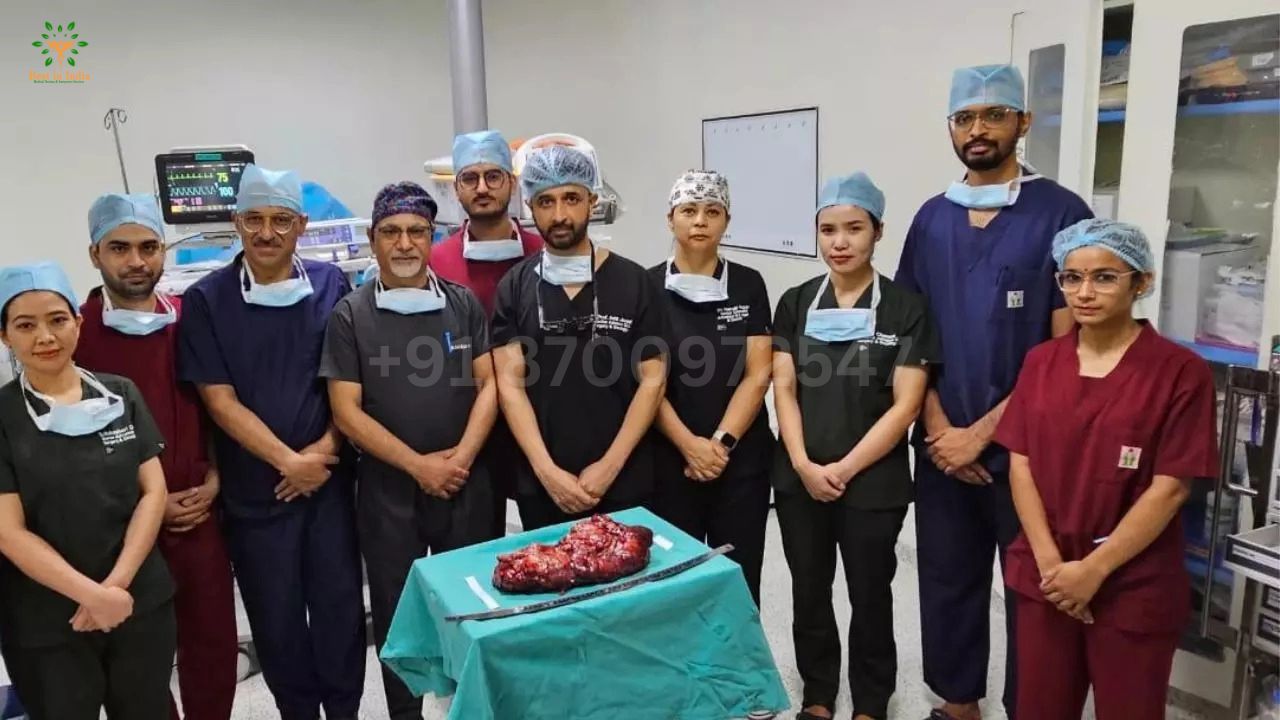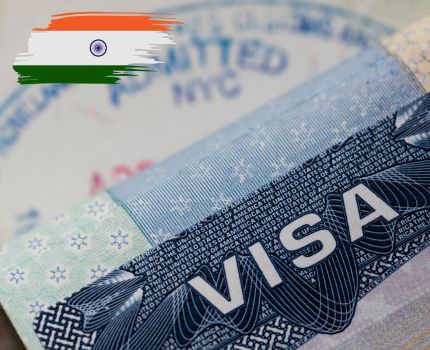A Comprehensive Guide to Medical Visas for India
Understanding Medical Visas for India
If you're planning to seek medical treatment in India, you'll need to apply for a medical visa. This type of visa allows you to enter India for the specific purpose of receiving medical care.
Requirements for a Medical Visa
To apply for a medical visa, you'll typically need to provide the following documents:
Medical invitation letter: Issued by a recognized Indian hospital, detailing your medical condition, proposed treatment, and estimated duration of stay.
Medical reports: Recent medical reports, test results, and other relevant medical documentation.
Proof of funds: Evidence that you have sufficient funds to cover your medical expenses, accommodation, and living costs.
Passport and visa application form: Your valid passport and completed visa application form.
Processing Time
The processing time for a medical visa can vary depending on several factors, including the volume of applications, the complexity of your case, and the specific embassy or consulate processing your application. However, as a general guideline, it may take anywhere from a few days to a few weeks to receive a decision.
India Embassy Websites by Country
Visit the website of Integrated Govrnment Online Directory of India to find the Official Indian Embassy website of your country. Or click on the name of the country for reaching to official website.
https://igod.gov.in/int/INMISS/organizations
Click the name of your country and you will see the official website of Indian Embassy of your country.
Embassy of India, Abidjan, Ivory Coast, Cote d Ivoire [Ivory Coast]
Embassy of India, Algiers, Algeria
Embassy of India, Amman, Jordan
Embassy of India, Ankara, Türkiye
Embassy of India, Antananarivo, Madagascar
Embassy of India, Argentina
Embassy of India, Ashgabat, Turkmenistan
Embassy of India, Asmara, Eritrea
Embassy of India, Astana, Kazakhstan
Embassy of India, Asuncion, Paraguay
Embassy of India, Athens, Greece
Embassy of India, Baghdad, Iraq
Embassy of India, Bahrain
Embassy of India, Baku, Azerbaijan
Embassy of India, Bamako (Mali)
Embassy of India, Bangkok, Thailand
Embassy of India, Beijing, China
Embassy of India, Berlin, Germany
Embassy of India, Bishkek, Kyrgyzstan
Embassy of India, Bogota, Colombia
Embassy of India, Brasilia, Brazil
Embassy of India, Bratislava, Slovak Republic
Embassy of India, Brazzaville, Congo [Republic of]
Embassy of India, Brussels, Belgium
Embassy of India, Bucharest, Romania
Embassy of India, Burkina Faso
Embassy of India, Cabo Verde
Embassy of India, Cairo, Egypt
Embassy of India, Caracas, Venezuela
Embassy of India, Chad
Embassy of India, Conakry, Guinea
Embassy of India, Copenhagen, Denmark
Embassy of India, Croatia
Embassy of India, Czech Republic
Embassy of India, DUBLIN, Ireland
Embassy of India, Dakar, Senegal
Embassy of India, Djibouti
Embassy of India, Doha, Qatar
Embassy of India, Dushanbe, Tajikistan
Embassy of India, Ethiopia
Embassy of India, Guatemala City
Embassy of India, Hanoi, Vietnam
Embassy of India, Harare, Zimbabwe
Embassy of India, Havana, Cuba
Embassy of India, Helsinki, Finland
Embassy of India, Iceland
Embassy of India, Iran
Embassy of India, Italy
Embassy of India, Jakarta, Indonesia
Embassy of India, Japan
Embassy of India, Kuwait
Embassy of India, Laos
Embassy of India, Lebanon
Embassy of India, Libya
Embassy of India, Lima, Peru
Embassy of India, Juba, South Sudan
Embassy of India, Kabul, Afghanistan
Embassy of India, Kathmandu, Nepal
Embassy of India, Khartoum, Sudan
Embassy of India, Kinshasa, Congo [Democratic Republic]
Embassy of India, Lisbon, Portugal
Embassy of India, Ljubljana, Slovenia
Embassy of India, Lomé, Togo
Embassy of India, Luanda, Angola
Embassy of India, Madrid, Spain
Embassy of India, Malabo, Equatorial Guinea
Embassy of India, Mexico City
Embassy of India, Minsk, Belarus
Embassy of India, Mongolia
Embassy of India, Monrovia, Liberia
Embassy of India, Moscow, Russia
Embassy of India, Muscat, Oman
Embassy of India, Myanmar
Embassy of India, Niamey, Niger
Embassy of India, Norway
Embassy of India, Panama
Embassy of India, Paramaribo, Suriname
Embassy of India, Paris, France
Embassy of India, Permanent Mission of India to International Organizations based in Vienna, Austria
Embassy of India, Philippines
Embassy of India, Phnom penh, Cambodia
Embassy of India, Poland
Embassy of India, Pyongyang, Korea (DPR)
Embassy of India, Rabat, Morocco
Embassy of India, Sana'a, Yemen
Embassy of India, Santiago, Chile
Embassy of India, Santo Domingo, Concurrently Accredited to the Republic of Haiti, Dominican Republic
Embassy of India, Sao Tome & Principe, Sao Tome and Principe
Embassy of India, Seoul, Korea (ROK)
Embassy of India, Serbia
Embassy of India, Sofia, Bulgaria
Embassy of India, Stockholm, Sweden
Embassy of India, Switzerland & The Principality of Liechtenstein
Embassy of India, Syria
Embassy of India, Tallinn, Estonia
Embassy of India, Tashkent, Uzbekistan
Embassy of India, Tbilisi, Georgia
Embassy of India, Tel Aviv, Israel
Embassy of India, The Hague, Netherlands
Embassy of India, Thimphu, Bhutan
Embassy of India, Tunis, Tunisia
Embassy of India, Ukraine
Embassy of India, United Arab Emirates
Embassy of India, United States of America
Embassy of India, Vilnius, Lithuania
Embassy of India, Yerevan, Armenia
Embassy of India, to Hungary and Bosnia & Herzegovina
High Commission of India, ., Somalia
High Commission of India, Abuja, Nigeria
High Commission of India, Accra, Ghana
High Commission of India, Australia
High Commission of India, Bandar Seri Begawan, Brunei Darussalam
High Commission of India, Colombo, Sri Lanka
High Commission of India, Dar-es-Salaam, Tanzania
High Commission of India, Dhaka, Bangladesh
High Commission of India, Freetown, Sierra Leone
High Commission of India, Gaborone, Botswana
High Commission of India, Georgetown, Guyana
High Commission of India, Islamabad, Pakistan
High Commission of India, Kampala, (Concurrently accredited to Burundi), Uganda
High Commission of India, Kigali Rwanda
High Commission of India, Kingston, Jamaica
High Commission of India, Kuala Lumpur, Malaysia
High Commission of India, LICI Building, Level 7, Fiji
High Commission of India, Lilongwe, Malawi
High Commission of India, London, United Kingdom
High Commission of India, Malta
High Commission of India, Malé, Maldives
High Commission of India, Mbabane(Eswatini), Kingdom of Eswatini
High Commission of India, Mozambique
High Commission of India, Nairobi, Kenya
High Commission of India, Namibia
High Commission of India, Nicosia, Cyprus
High Commission of India, Ottawa, Canada
High Commission of India, Port Louis, Mauritius
High Commission of India, Port Moresby, Papua New Guinea
High Commission of India, Port of Spain, Trinidad and Tobago
High Commission of India, Pretoria, South Africa
High Commission of India, Seychelles
High Commission of India, Singapore
High Commission of India, Wellington, concurrently accredited to Samoa, Niue, the Cook Islands & Vanuatu, New Zealand
High Commission of India, Yaounde, Cameroon
High Commission of India, Zambia
Indian Mission to ASEAN, Jakarta, India-ASEAN (Jakarta)
Mauritania [Islamic Republic of]
Permanent Mission of india, Permanent Mission of India to the United Nations, UN-PMI(New York)
Permanent Mission of india, Permanent Mission of India, UN-PMI(Geneva)
Permanent Mission of india, to the Conference on Disarmament, Geneva, UN-PMI (CD)Geneva
Representative Office of India, Ramallah, Palestine
Saudi Arabia
Additional Tips
Plan ahead: Apply for your visa well in advance of your planned trip to avoid delays.
Provide accurate information: Ensure that all the information you provide in your application is accurate and complete.
Check visa validity: Verify the validity of your visa before traveling to India.
Research medical facilities: Do your research to find reputable hospitals and doctors in India that specialize in your medical condition.
By following these guidelines and preparing the necessary documents, you can increase your chances of obtaining a medical visa to India and accessing the medical care you need.








